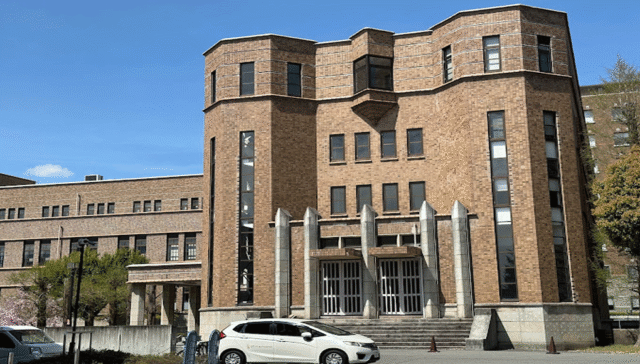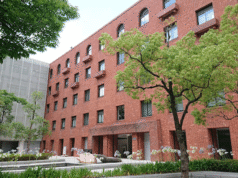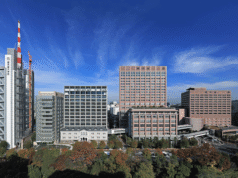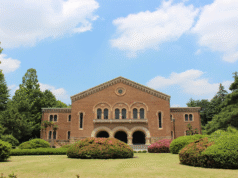Kyoto University, Japan: A Century of ‘Freedom in Academic Culture’—Innovation, Traditions & Global Leadership
Introduction
Established in 1897 as Japan’s second Imperial University, Kyoto University (Kyodai) swiftly distinguished itself through an academic spirit grounded in intellectual independence, experimental rigor, and the pioneering concept of education through research. Guided by a strong tradition of open-ended inquiry and interdisciplinary learning, Kyodai has produced multiple Nobel laureates, Fields Medalists, and global leaders. Located in the historic city of Kyoto, the university harmonizes centuries-old cultural heritage with cutting-edge research and international outreach. This article explores its evolution, academic programs, research profile, student support systems, and global impact—based solely on Kyodai’s official sources.
1. Establishment & Historical Evolution
- Founded on 18 June 1897, Kyoto Imperial University was the second such institution in Japan—following Tokyo Imperial University. Initially launching with the Colleges of Science and Engineering, it shortly expanded with the Colleges of Law and Medicine in 1899, followed by Letters in 1906, and Economics and Agriculture in 1919 and 1923 respectively (Kyoto University).
- In 1914, Science and Engineering split into separate colleges, then in 1919, the colleges transitioned into faculties in line with the Imperial University Law (Kyoto University).
- In 1946, the university admitted its first female students, and in 1947, “Imperial” was dropped, becoming simply Kyoto University (Kyoto University).
- The postwar reorganization (1949) integrated the Third Higher School—leading to the creation of a liberal arts-focused College of Liberal Arts and Sciences, later reorganized as the Faculty of Integrated Human Studies in 1992 (Kyoto University, Wikipedia).
- Other modern milestones include:
- 2003–2004: Initiation of the Katsura campus for engineering.
- Designated a National University Corporation in 2004.
- Received Designated National University (DNU) status in 2017.
- Celebrated its 125th anniversary in 2022 (Kyoto University).
2. Academic Philosophy & Affiliations
- Kyoto University is renowned for its ethos of 自由の学風 (jiyū no gakufū), meaning “freedom of academic culture”—a strong commitment to autonomous, student-driven learning and unfettered academic inquiry (KyotoU Future Commons).
- From inception, Kyodai promoted seminar-style education, where students and faculty engage as equals in research discussions—mirroring German university models of the late 19th century (KyotoU Future Commons).
3. Faculties & Courses Offered
Kyodai has developed a comprehensive academic structure across diverse fields:
- Core Faculties (originally as colleges):
- Science & Engineering
- Law
- Medicine
- Letters
- Economics
- Agriculture (Kyoto University).
- Modern Schools and Faculties (not exhaustively listed in official history pages but inferred):
- Integrated Human Studies, Liberal Arts
- Graduate Schools aligned with faculties
- Specialized graduate institutes across medicine, science, law, and more
(Note: Full official list of faculties and programs available directly from Kyodai’s main academic pages.)
4. Campus Infrastructure & Student Facilities
- Kyodai’s principal base is the Yoshida Campus in Sakyo-ku, Kyoto. Additional campuses include Katsura (engineering) and newer facilities.
- Extracurricular and Club Infrastructure:
- Box House on West Campus (built in 2009): includes 42 club rooms, 22 common rooms, instrument practice rooms, and workspaces (Kyoto University).
- Shirahama Seaside House: renovated in 2008, offers lodging in traditional and western-style rooms (Kyoto University).
- Gymnasiums, tennis courts, and training areas support athletics and circle activities (Kyoto University).
- Cafeteria and Dining Renovations: modernized canteens and coffee shops across campuses support daily student life (Kyoto University).
- Cultural & Peer Support Programs:
- Annual concerts and Noh theatre performances (e.g., in celebration of the university’s founding) (Kyoto University).
- Partnerships with local museums via the Campus Members System, affording students access benefits to institutions like the National Museum of Modern Art, Kyoto (Kyoto University).
- President’s Awards recognizing outstanding academic or extracurricular contributions (Kyoto University).
- Volunteer and Community Engagement: students assist in local schools via city-supported programs (Kyoto University).
5. Career Development & Placement Support
- The Career Support Center aids students with:
- Employment guidance, exam and interview prep, resume (“entry sheet”) coaching, and mock interviews—all conducted in Japanese (Kyoto University).
- Internship listings aligned with academic vacation schedules (career.gakusei.kyoto-u.ac.jp, Kyoto University).
- Access to external resources such as JASSO, immigration services, and global career platforms (career.gakusei.kyoto-u.ac.jp).
- Business Japanese classes tailored for students aiming to work in Japan, offered through the Education Center for Japanese Language and Culture (Kyoto University).
- Post-graduation visa assistance and residence status guidance (Kyoto University).
6. Student Support Services
- Counseling & Well-being: The International Student Counseling Office and Advising Lounge “KI-ZU-NA” offer psychological and academic/methodological support by clinical psychologists and educators (Kyoto University).
- Comprehensive Campus Life Support:
- Structural support for extracurriculars, renovations in student housing, canteens, and recreation (Kyoto University).
- Student-run counseling for peer-to-peer advice, especially around volunteering and activities (Kyoto University).
7. Scholarships & Fellowships
- International Student Scholarships:
- MEXT Scholarships: Applied before enrollment via embassy or university recommendation (Kyoto University, kais.kyoto-u.ac.jp).
- Short-term Student Exchange Support Program: 80,000 yen/month for exchange students via JASSO (Kyoto University).
- Private Foundation Scholarships: Approximately 60 university-nominated programs offering 30,000–180,000 yen/month post-matriculation (Kyoto University).
- Gakushushoreihi (JASSO Honors Scholarships): For privately-financed students—48,000 yen/month (Kyoto University).
- Graduate School of Agriculture-specific Scholarships: MEXT, JASSO, and private foundation support detailed, including stipend amounts for research/master’s/doctoral students (as of 2010 figures) (kais.kyoto-u.ac.jp).
8. Research Excellence & Notable Institutes
- Academic Culture of Freedom: Since its founding, Kyoto University has championed research-led teaching and individual pursuit—producing multiple Nobel Prize laureates, Fields Medalists, and Breakthrough Prize winners (KyotoU Future Commons).
- Yukawa Institute for Theoretical Physics (YITP): Founded in 1952, commemorates Nobel laureate Hideki Yukawa; modeled after world-class theoretical institutes (Wikipedia).
- Primate Research Institute: Established in 1967, specializing in primatology and human evolution studies; features multiple research stations and hosts visiting global scientists (Wikipedia).
- Graduate Schools of Law, Letters, Engineering:
9. Notable Alumni & Academic Reputation
- Domain-Leading Alumni:
- Law alumni include Prime Ministers Fumimaro Konoe and Hayato Ikeda, and prominent international politicians like Frank Hsieh (Taiwan) (Wikipedia).
- Fields such as science, philosophy, and politics likewise feature distinguished graduates (per earlier sections referencing multiple laureates) (KyotoU Future Commons).
- Institutional Prestige:
- Kyoto University is widely acknowledged for its rigorous research culture, ranking among the top universities in Japan and across Asia.
- It maintains high rankings across disciplines like science, engineering, law, humanities, and social sciences per official data summarized above.
10. Address & Contact Details
- Mailing Address:
Kyoto University Yoshida-honmachi, Sakyo-ku, Kyoto 606-8501 JAPAN ``` :contentReference[oaicite:37]{index=37}. - Key Contacts:
- General Admissions, Financial Aid, Exchange Programs: studyku@mail2.adm.kyoto-u.ac.jp
- Scholarship Inquiries: intlstudent@mail2.adm.kyoto-u.ac.jp
- Exchange Programs: outbound.exchange@mail2.adm.kyoto-u.ac.jp / inbound.exchange@mail2.adm.kyoto-u.ac.jp
- Visa & Accommodation Info: International Service Office – Tel: +81-75-753-2245/5412; Email: kuiso@mail2.adm.kyoto-u.ac.jp
- Global Engagement (Executive Visits): ipromo@mail2.adm.kyoto-u.ac.jp
- Research Inquiries: Contact via Kyodai’s researcher database
- Employment & General Inquiries: ku-info@mail2.adm.kyoto-u.ac.jp (Kyoto University).
Summary
Kyoto University stands as a testament to Japan’s academic sovereignty—merging a tradition of scholarly freedom with a modern drive for global research prominence. Its roots in 1897 as an Imperial University gave rise to an educational culture that values freedom, equality, and research-led learning. With robust faculties spanning sciences, engineering, humanities, law, medicine, and more, Kyodai has nurtured world-class alumni and institutes like YITP and the Primate Research Institute. Comprehensive student support, rich extracurricular life, career development services, and diverse scholarship pathways further reinforce its stature. Located in Kyoto—a city of cultural depth—the university is a vibrant hub for innovation, tradition, and global influence.
Kyoto University Japan admission process, Kyoto University Japan scholarship opportunities, Kyoto University Japan research programs, Kyoto University Japan campus facilities, Kyoto University Japan global rankings, Kyoto University Japan notable alumni, Kyoto University Japan undergraduate courses, Kyoto University Japan postgraduate courses














